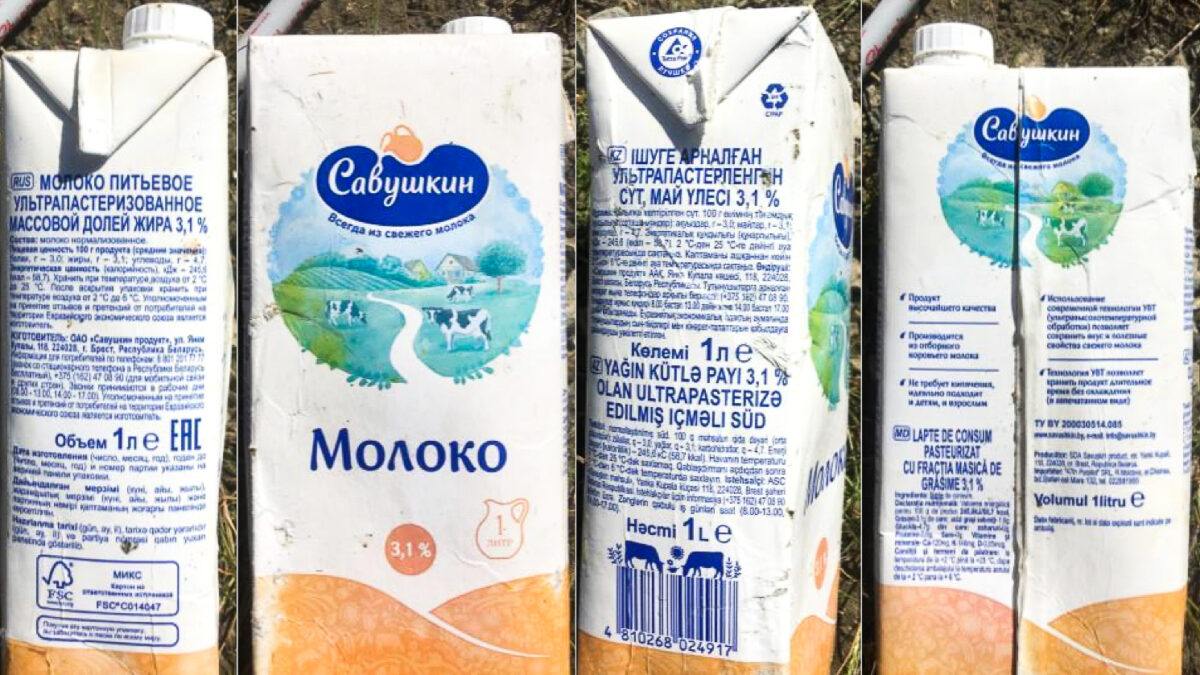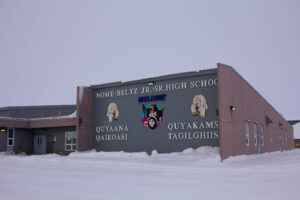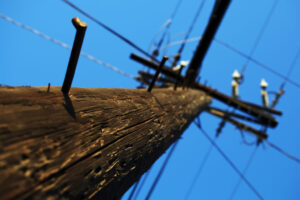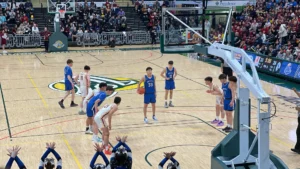An influx of empty containers and hazardous marine waste has washed up in beach communities across Western Alaska this year. Those involved in the cleanup say it’s most likely coming from the other side of the Bering Strait.
“There are lot of water bottles, but some of it is butane, some of it penetrating oil – really not good things,” said Robb Kaler, a biologist with the U.S. Fish and Wildlife Service. He recently published a collection of reports and observations from five different communities in the Bering Strait region.

Erika Apatiki works as a researcher with the Alaska Community Action on Toxins in Gambell. She and her mother spent a day picking up plastic along the normally-pristine beach, near an important subsistence spot. They filled 19 40-gallon trash bags.
“It’s actually pretty heartbreaking, especially since we see on the media that the whales are dying… From plastic pollution, all over the world,” Apatiki said.
Apatiki mentioned most the litter was blue plastic wrappings for filleted fish with words written in a foreign language and script.
Ship trackers in the Bering Strait showed significantly more fishing vessels and tankers along the Russian side of the strait than along the Western Alaska coast this summer.
In a letter to the U.S. Coast Guard, the regional non-profit Kawerak said “residents in our communities have taken it upon themselves to become first responders,” and that despite reaching out to the federal Marine Debris program and the U.S. Coast Guard “we are having to bear the cost of cleaning our shores ourselves.”
Kawerak, along with several communities in the Bering Strait region, have urged the Coast Guard to investigate the situation and enforce national and international rules that govern the release of debris in the world’s oceans.
Image at top: This milk carton, with writing in Cyrillic script, washed up on a beach in Nome this summer. Photo by Austin Ahmasuk.




